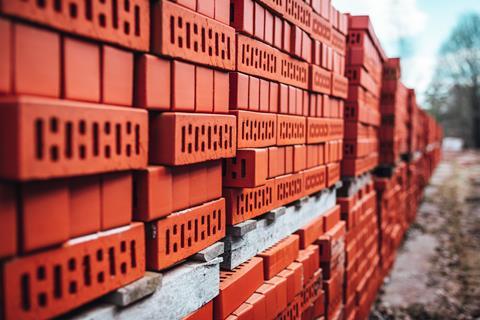Number of products in high demand increases to include host of materials including screws, cement and steel
A shortage of construction materials such as timber, steel and screws is likely to get worse before it gets better with firms told to plan for increased demand and longer delays.
A joint statement from John Newcomb, chief executive of the Builders Merchants Federation, and Peter Caplehorn, chief executive of the Construction Products Association, warned demand for construction products both in the UK and globally meant problems in getting hold of products will continue throughout the year.

The pair, who are co-chairs of the Construction Leadership Council’s product availability work group, said while supplies of plaster and plasterboard were much improved on last year, almost every other product group is experiencing longer lead times and higher prices.
And they warned the issues will continue for at least the next two to three months.
Newcomb and Caplehorn said the number of materials on the shortage list has increased with other countries prepared to pay more than the UK to get hold of products.
They said: “Plastics, cement and aggregates have joined existing lists of products in short supply, including timber, steel, roof tiles, bricks and imported products such as screws, fixing, plumbing items, sanitaryware, shower enclosures, electrical products and appliances.
“Imports of timber will be an issue for the foreseeable future. Not enough timber is being produced to meet world demand. Added to this, other countries are prepared to pay more to secure their supply, pushing the UK lower down the pecking order.”
Steel is also continuing to be in high demand globally with prices going up as a result, they added.
Other issues facing the sector include raw material shortages hitting polymer supplies that are causing production problems for plastics such as lower ground drainage, while coatings manufacturers were also experiencing raw material shortages.



























No comments yet